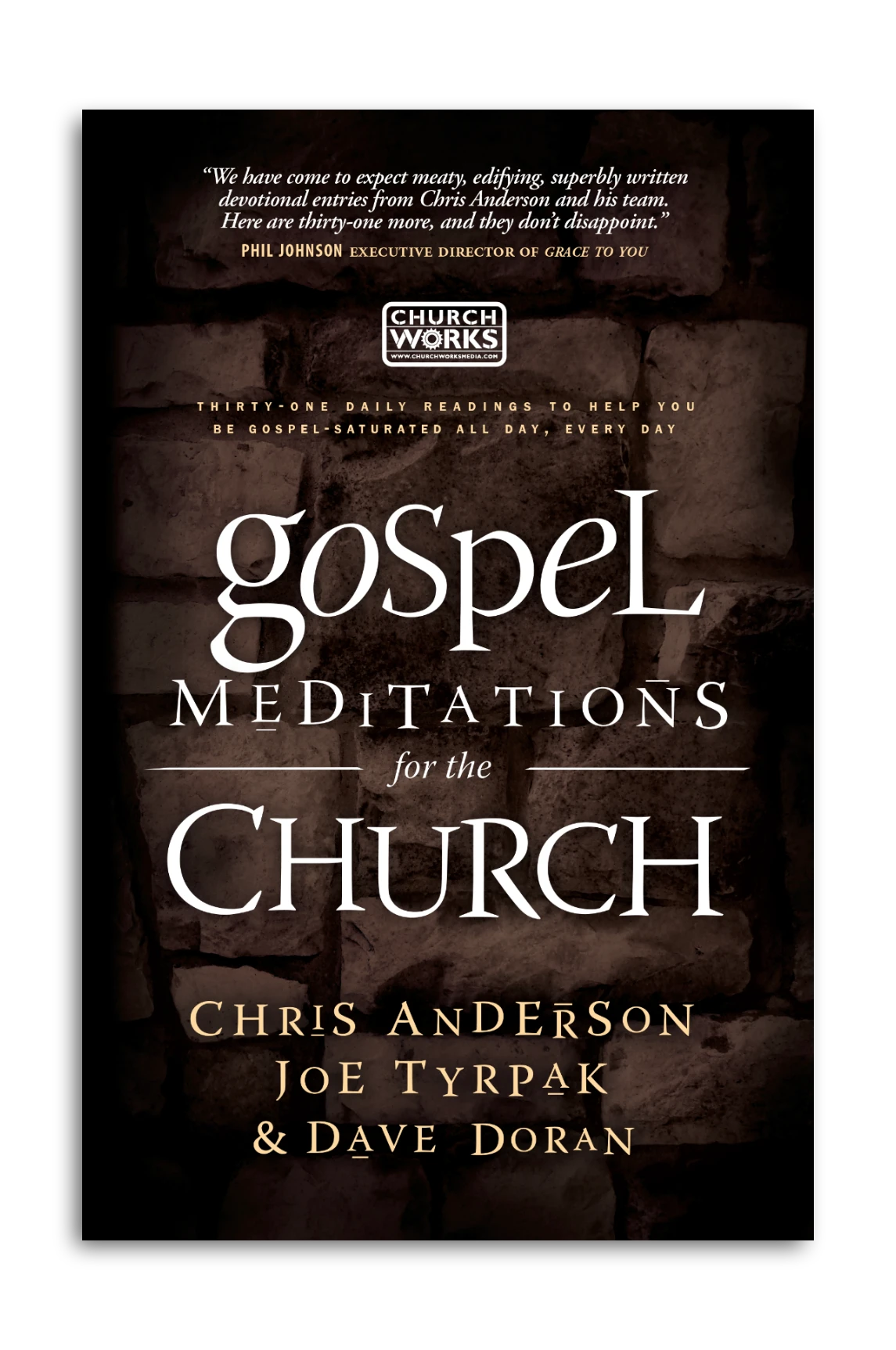
Blog
Separation, Cooperation, and Schism

This post by Chris Anderson comes from Gospel Meditations for the Church (Day 14).
“We ought to support people like these.” (3 John 8)
Christian separation is essential. And sometimes sinful. The same can be said of Christian cooperation. It’s both a blessing and a curse. Churches have to determine when they should cooperate with other believers, when they might, and when they mustn’t. It’s complicated. Thankfully, we’re not left to our own devices. Scripture deals with separation, cooperation, and schism in the “postcard” letters of 2 and 3 John.
We must separate from those who pervert the gospel.
Second John teaches us that separation protects the gospel. In this short letter John commands Christian churches to defend the gospel from those who twist or deny it.
It’s true that John speaks often of love—in his Gospel, in 1 John, and even in 2 John (vv. 5–6). But he could also take the gloves off and fight when necessary. He warns against those who deny what Scripture teaches about the person and work of Christ (2 John 7–11). His estimate of a false teacher is unambiguous: “Such a one is the deceiver and the antichrist” (v. 7).
John doesn’t merely content himself with this warning; he commands the church not to partner with false teachers in any way. Even hosting false teachers (v. 10)—much less partnering with them!—makes us partakers of their wickedness (v. 11).
Every New Testament book except Philemon warns against false teachers.
We must oppose error, not aid and abet it. Here, 2 John joins a chorus of New Testament books in urging the church to defend the faith. Every New Testament book but Philemon (which accompanied Colossians) warns against false teachers.
We should cooperate with those who promote the gospel.
Third John teaches us the flip side of what we learned from 2 John—that collaboration promotes the gospel. If we support false teachers, we are guilty by association (2 John). But if we support gospel teachers, we are partners by association: “fellow workers for the truth” (3 John 8).
Yes, there are enemies of the gospel. But there are also brothers who, though “strangers,” are worthy of our support and partnership (3 John 5–6). John commends the church for showing hospitality to gospel workers, even those who were previously unknown to them. He calls for liberality, both in extending friendship to others who love the gospel and in extending assistance to their gospel-rooted work.
We should beware of those who confuse those two categories.
Third John also teaches us that schism perverts the gospel. Here’s a quick synopsis of a conflict in the church addressed in 3 John. Gaius (v. 1) was a leader in the church who had been hospitable to those who preached the true gospel (vv. 3–8). As Mark Dever describes it, Gaius showed what it means to “take trouble for the gospel.”*
But he and faithful Demetrius (v. 12) were opposed in the church by Diotrephes. Dever cites Diotrephes as an example of what it means to “make trouble for the gospel” (vv. 9–10). Diotrephes refused to fellowship with the apostle John (v. 9). Worse yet, he refused to fellowship with anyone who did fellowship with the apostle John (v. 10).
Diotrephes probably boasted that he was practicing what has been called first- and second-degree separation. But because he was separating where he should have been collaborating—where there was gospel truth instead of the type of heresy mentioned in 2 John—he was actually practicing “first-” and “second-degree” schism.
John describes Diotrephes’ words and actions as “wicked nonsense” (v. 10). And his motivation is telling: he wanted to “put himself first,” or as the KJV says, he loved “preeminence” (v. 9). He was protecting turf, not truth. And thus, he was a villain to be shunned, not imitated (v. 11).
The church must separate from those who promote error, cooperate with those who promote truth, and be very careful to know the difference.
The church must separate from those who promote error. The church must cooperate with those who promote truth. And the church must be very careful to know the difference between the two, lest we be guilty of the error of Diotrephes.
Let the gospel be so precious to you that you both protect it and promote it.
*Cited quotations from The Message of the New Testament: Promises Kept by Mark Dever (Crossway, 2005).
Explore the whole book!
Motivated by a deep love for Christ’s church—flawed as it is on this side of heaven—Chris Anderson, Joe Tyrpak, and Dave Doran bring you 31 devotional lessons that focus on the nature, mission, and corporate life of the local church. Gospel Meditations for the Church will challenge and bless not only church leaders, but the entire congregation.













